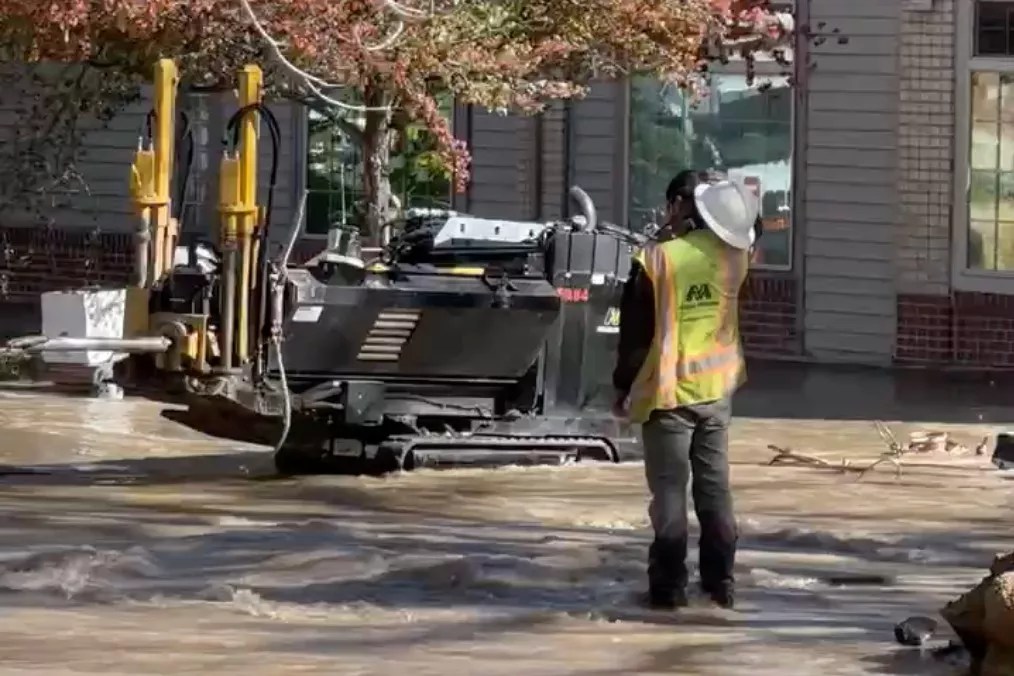
Stephanie March

Audio By Carbonatix
On the morning of Monday, October 28, officials with Denver Water and the U.S. Environmental Protection Agency gathered at 28th and Champa streets to celebrate the advancement of the city’s Lead Reduction Program.
By that afternoon, the block was underwater.
Mere hours after Denver Water CEO Alan Salazar and EPA head of water Bruno Pigott visited the construction site as part of a media event applauding the work, a pipe broke as crews were backfilling the hole following a lead service line replacement at the intersection, causing ankle-deep water to flood the street in the Curtis Park neighborhood.
“We’re making great progress,” Salazar told a small crowd at the event hours before the water main break occurred around 12:45 p.m. “Denver Water took on the responsibility of this problem in 2019. We started saying we will replace these service lines for you. We’re not responsible for it, but we’re going to take care of it for you.”
Officials showered the construction site with compliments before the actual shower began, with Pigott saying the federal government is working to “ensure that communities around the country catch up to Denver Water and the good work they’re doing.”
Water service was turned off for 23 customers for nearly four hours because of the incident, according to Denver Water spokesperson Jimmy Luthye. Service was restored at around 4:30 p.m., and road repairs were expected to begin after the pipe was fixed, he adds.
“While unforeseen accidents like this occasionally occur over the course of large projects such as our Lead Reduction Program, it is fortunate that the damage to the pipe was minimal, allowing our crew to get this repaired quickly and get the water back on for these customers,” Luthye says. “They worked to quickly get the water shut off to avoid further damages.”
No one involved in the morning’s media event was still on site when the water main break occurred, Luthye says.
The Lead Reduction Program is an initiative to replace all lead service lines in Denver Water’s service area with copper lines to prevent lead from contaminating water as it moves into households. The agency also provides free water pitchers and filters for residents until their lead service line is replaced. The program was approved in December 2019 and reapproved in 2022 by the EPA and the Colorado Department of Public Health and Environment.
“There’s no lead in Denver Water’s water,” Salazar explained during Monday’s event. “What we’re doing is eliminating the risk of lead exposure in service lines that are in people’s homes.”
Denver Water estimates there are around 60,000 lines that need to be replaced throughout the city. As of Monday, they were “almost halfway through that 60,000,” Salazar said.
Fingers crossed there aren’t too many more mishaps in the second half.